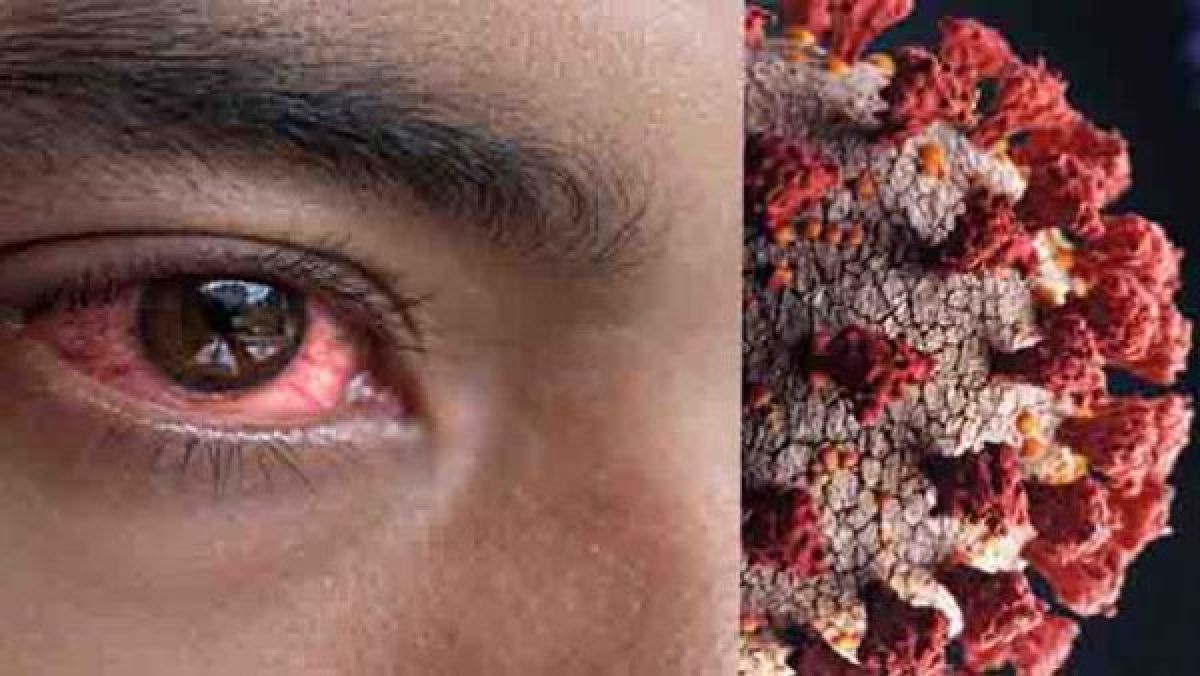Ophthalmologists warn of possible spread of black fungus infection, point out at need to distribute medicine in hospitals

By Mahima Devkota, Kathmandu, May. 24: Ophthalmologists have warned of possible outbreak of black fungus infection and stressed on the need to purchase sufficient medicine such as Amphotericin B for the treatment of the infected.
Infection of black fungus is seen in COVID-19 survival after 5-6 weeks of recovery.
A patient of black fungus is administered Amphotericin B via IV treatment. A large number of cases of black fungus is seen in India where COVID-19 cases were alarmingly high till a couple of weeks back.
Dr. Rohit Saiju, professor at the TU Teaching Hospital, said, "Black Fungus infection is more contagious and fatal, 60 percent facility rate recorded, however, one can buy the time to prevent it from getting worse for the infection is mainly seen in COVID-19 survival after 5-6 weeks of recovery".
Pointing out that Amphotericin B, medicine used for the treatment of the Black Fungus, is not sufficient nor is equally distributed to all the medical hospitals of the country, as the Black Fungal infection is very low in the country, Dr. Saiju said that the early detection and prevention is the best option for Nepal. "We will have to procure more drug from Russia if needed."
Dr. Saiju said, “There are only four registered black fungus cases in the country in last 5-6 days. We are not able to study more cases of eye infection as the priority of COVID-19 infected people is safe recovery. At the peak of the COVID-19 infection, much attention is not paid to eye problems and many prefer not to commute to hospitals for the inquiry. So, we are yet to known about the actual scenario of the black fungus in the country.”
Dr. Saiju said that it takes about 5-6 weeks for the fungal infection to come on surface and he urged the government to take steps for conducting more research in this regard and ensure sufficient medicine.
“The early preparedness and detection will put a stop on casualties and infection rate. Therefore, before the deadly fungus gets more fatal and life taking, one needs to pay attention to its symptoms and consult the doctor in time,” added Dr. Saiju.
Dr. Sanjeev Bhattarai, assistant professor at the TU Teaching Hospital, said that Black Fungus, a mucormycosis infection, is found on air, land; and dead and decaying trees and edibles grow as fungus. In normal condition, it does not attack people. The rise of the Black Fungus infection was seen during SARS infection as well as in first wave of COVID-19.
Dr. Bhattarai, said, “Black fungus is an opportunistic fungus, people that are in immunocompromised because of infection and diseases are easily attacked by fungus and bacteria’s than in normal health condition. Because of the COVID-19 infection, immune power is suppressed as a result black fungus have been easily attacking the patients.”
In addition, people with uncontrolled sugar, diabetes, cancer, and kidney infection, and steroids are another listed vulnerable group for the black fungus infection. In the treatment also, heavy doses of steroids, oxygen, and ventilators are used for prolonged periods. This weakens the body and makes it vulnerable for fungal infections.
Headache, nasal congestion, pain, and swelling in the eyes, difficulty in breathing, partial or complete loss of vision, black crusts in the nose are common symptoms of black fungus infection, said Dr. Bhattarai, if it goes untreated, then it can take life.
Dr. Bhattarai suggests all to be cautious about eye infection following 5-6 weeks of recovery from COVID-19 and seek immediate treatment to avoid worst effect of the much contagious fungal infection.
Recent News

Do not make expressions casting dout on election: EC
14 Apr, 2022
CM Bhatta says may New Year 2079 BS inspire positive thinking
14 Apr, 2022
Three new cases, 44 recoveries in 24 hours
14 Apr, 2022
689 climbers of 84 teams so far acquire permits for climbing various peaks this spring season
14 Apr, 2022
How the rising cost of living crisis is impacting Nepal
14 Apr, 2022
US military confirms an interstellar meteor collided with Earth
14 Apr, 2022
Valneva Covid vaccine approved for use in UK
14 Apr, 2022
Chair Prachanda highlights need of unity among Maoist, Communist forces
14 Apr, 2022
Ranbir Kapoor and Alia Bhatt: Bollywood toasts star couple on wedding
14 Apr, 2022
President Bhandari confers decorations (Photo Feature)
14 Apr, 2022










